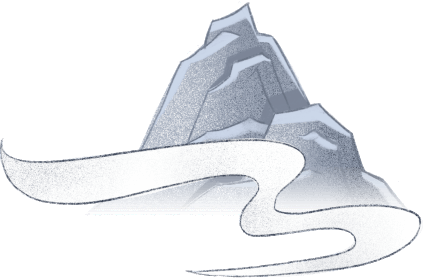【文化释说英文有声书】第一篇 华夏始祖:辉煌壮阔的文明图谱(二)

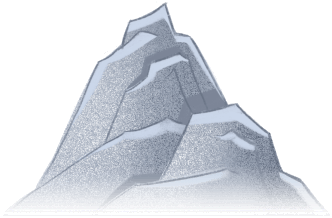





华夏始祖:辉煌壮阔的文明图谱
Section 2. The Patriarchs of the Hua Xia Civilization – The Glorious and Expansive Map of Civilization
0..




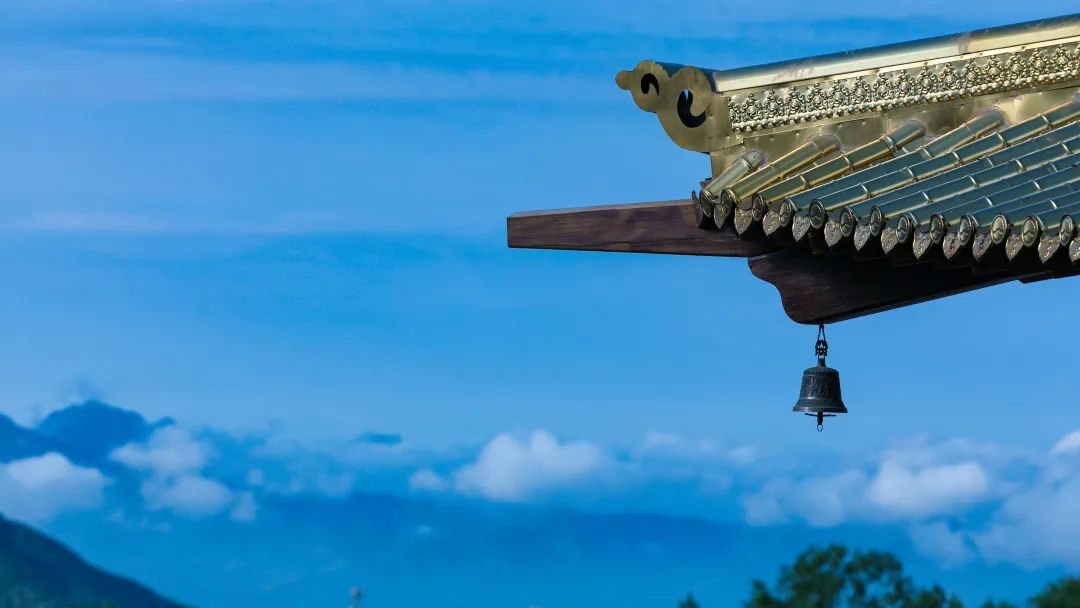
中国的文化叫文以载道——迤逦跌宕的诗词歌赋,瑰丽悠远的文学艺术,寓道于中的衣食住行……凝结着古人精神生活果实的许多非物质文化遗产曾经都是中华文明的重要载体。广袤的大地上 , 农耕文明的血脉中 , 绵延千年的民族习俗里 , 华夏文明始终是中华民族最珍贵的集体记忆,蕴涵着华夏先祖最古老的精粹和智慧。
The culture of the Chinese has been described as being the carriage upon which the Dao is conveyed – song and poetry that is canorous, rich and diverse; arts and literature that is charming and elegant and has a long tradition; and the manner in which one dresses, eats, lives, and behaves while dwelling in the Dao – many of these incorporeal cultural inheritances within which are hidden the fruits of the spiritual lives of the ancients were at one time important vessels for the conveyance of the Chinese culture. Within the lifeblood of this agricultural civilization on such vast and extensive land, and in the customs and traditions of a people who have perpetuated for a few thousand years, the Hua Xia civilization has, since the beginning, always been the most precious collective memory of the Chinese people, embodying within it the oldest essence and wisdom of our Hua Xia forefathers.






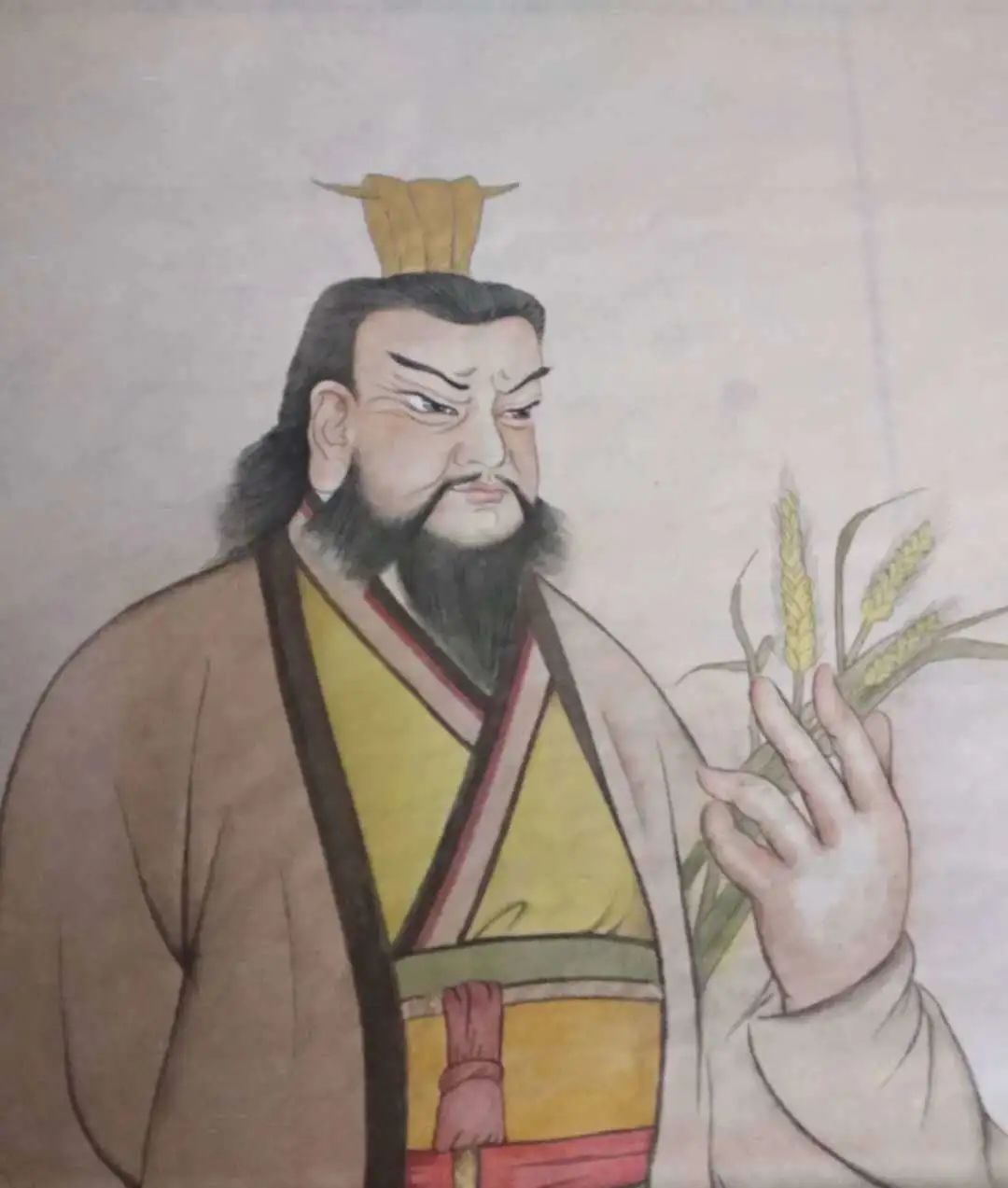
“三皇五帝”之炎帝
Emperor Yan of the Three Sovereigns and the Five Emperors
我们探讨华夏文明的源头,绕不过“三皇五帝”。“三皇”是指燧人、伏羲和神农;“五帝”是指黃帝、颛顼、帝喾以及尧和舜。很长一段时间,许多人认为这段上古时期多带有神话色彩,而随着我国考古工作的不 断深入,华夏文明的轮廓和历史印迹越来越清晰。山东省发现了距今 约 7000 年的北辛文化遗址;浙江省发现了距今约 7000 年的河姆渡遗址;河南省发现了距今约 7000 至 5000 年的仰韶文化遗址;山东省发现了距今约 6400 至 4500 年的大汶口文化遗址;辽宁省发现了距今约5000 年的红山文化遗址;山东省发现了距今约 4600 至 4000 年的龙山文化遗址;浙江省发现了距今约 5300 至 4000 年的良渚文化遗址。其中,龙山文化遗址,正是中华民族始祖炎帝和黄帝, 也就是“三皇五帝” 生活的时期。
When we search for the origins of the Hua Xia civilization, we cannot ignore the Three Sovereigns and the Five Emperors. The Three Sovereigns refer to Sui-Ren, Fu-Xi and Shen-Nong; and the Five Emperors Emperor Huang, Emperor Zhuan-Xu, Emperor Ku, Emperor Yao, and Emperor Shun. For a very long time, many people have felt that the history of this period of early antiquity was filled with much myth. However, with the ever-progressing work of our country’s archeologists, we have been continuously getting a clearer picture of the formation and historical traces of the Hua Xia civilization. The historical site of the 7,000 year-old Bei Xin culture was discovered in Shandong Province, the 7,000 year-old Hemudu site in Zhejiang Province, the historical site of the 5,000 to 7,000 year-old Yang Shao culture in Henan Province, the historical site of the 4,500 to 6,400 year-old Da Wen Kou culture in Shandong Province, the historical site of the 5,000 year-old Hong Shan culture in Liaoning Province, the historical site of the 4,000 to 4,600 year-old Long Shan culture in Shandong Province, and the historical site of the 4,000 to 5,300 year-old Liang Zhu culture in Zhejiang Province. Among these, the Long Shan culture historical site is from the time of Emperors Yan and Huang – the patriarchs of the Chinese people – which was also the time during which the Three Sovereigns and the Five Emperors lived.
《国语•晋语》记载:“昔少典娶于有蟜氏, 生黄帝、炎帝。黄帝以姬水( 陕西武功漆水河) 成, 炎帝以姜水( 陕西宝鸡清姜河) 成。成而异德, 故黄帝为姬, 炎帝为姜。二帝用师以相济也, 异德之故也。” 这是中国史料有关炎帝和黄帝诞生地的最早记载。
The Jin Discourse of the Discourses of the States records, ‘In the past, Shao-Dian married a lady from the You Jiao clan and produced Emperors Huang and Yan. Emperor Huang grew up in River Ji (River Qi Shui in Wugong, Shanxi) while Emperor Yan in River Jiang (River Qing Jiang in Baoji, Shanxi). As they grew up to possess different characters, Emperor Huang called himself Ji, and Emperor Yan called himself Jiang. Both emperors had been helped by each other’s advisors due to the fact that their characters were different.’ This is the earliest record of the birth-places of Emperors Yan and Huang in Chinese history.

炎帝神农和黄帝轩辕生活的时期, 距今约 5000 年 , 神农氏种植黍和稷 , 黄帝轩辕已经开始种植黍、稷、菽、麦、稻等。神农氏是中华农耕文明的创始者,遍尝百草以医民恙 , 据《淮南子》载:“尝百草之滋味, 水泉之甘苦, 令民所避就。当此之时 , 一日而遇七十毒。” 正是神农氏以身实践和上下求索的精神,奠定了华夏中医学的基础。
Emperor Yan or Shen-Nong and Emperor Huang or Xuan-Yuan lived at about 5,000 years ago during which Shen-Nong cultivated the two kinds of millet while Xuan-Yuan had already begun to grow the two kinds of millet, beans, wheat, and rice. Shen-Nong was the creator of Chinese agricultural civilization. He tried out myriad herbs to cure the ailments of the people. According to Huai Nan Zi, it is mentioned, ‘[He] tried out the tastes of myriad herbs, and the sweetness and bitterness of spring waters, [so that he could] let the people know which to avoid. During this time, he had met with seventy poisons within a single day.’ It is exactly this spirit to use his own body to conduct practical experiments and to constantly inquire that the bedrock of Chinese medicine was laid down by Sheng-Nong.
原始人多以兽皮遮体,至神农时期,开始治麻为衣,民着衣裳,这是华夏迈向文明社会的重大一步。神农法天地,削桐为琴,结丝为弦,作五弦琴。这种琴发出的声音,能道天地之德,能表神农之和,能乐百姓之心。三皇五帝中,作为上承燧人和伏羲,下启黄帝的氏族领袖,炎帝带领上古先民们创造了丰富的精神财富和物质财富,为华夏文明 的发轫和中华民族的形成,准备了最初的物质和文化基础。
People of the prehistoric times often covered themselves with animal skin. It was only until the time of Shen-Nong that flax started to be used to make clothes. When people began to clothe themselves, it was a great step toward civilized society for the Chinese. Shen-Nong lived according to the natural laws. For the five-stringed zither, he shaved Tung wood to make the frame and braided silk to make the strings. This type of zither produced sounds which celebrated the virtues of the heaven and the earth, lauded the harmony brought about by Shen-Nong, and pleased the heart of the citizenry. Among the Three Sovereigns and the Five Emperors, Emperor Yan inherited the legacies of Sui-Ren and Fu-Xi and passed his on to Emperor Huang who became the leader of the Chinese race. Emperor Yan led our ancient forefathers to create abundant spiritual as well as physical wealth, making ready the earliest material and cultural foundation for the dawning of the Chinese civilization and the formation of the Chinese race.

炎帝功昭日月 , 德泽后世。古老灿烂的农耕文明奠定了中华文化的特征,自给自足的生活方式 , 恰与今天全世界所提倡的和谐、环保、低碳生活的理念不谋而合。
The merits of Emperor Yan are as prominent as the sun and the moon, and his virtues benefitted the generations after him. This ancient and glorious agricultural civilization established the special attribute of the Chinese culture – a self-reliant and self-contented way of life, which is naturally in tune with the ideal, harmonious, eco-friendly, and low carbon-emitting way of life encouraged in the world now.







三皇之首:燧人氏
The First Among the Three Sovereigns: Sui-Ren
燧,有“贯通黑暗”之意,表示从黑暗的隧道中走出来而豁然开朗。位列“三皇”之首的燧人氏,就是这样一位发明钻木取火技术,结束 远古人类茹毛饮血历史的大智者,他被后世奉为“火祖”。
The character sui carries the meaning of ‘penetrating through darkness’. It indicates the instantaneous opening up of the mind as one walks out of a dark tunnel. Such was the manner in which Sui-Ren, who is placed the first among the Three Sovereigns, discovered the technique of fire-making by drilling wood. He was the great sage who put an end to the human history of devouring raw meat and consuming fresh blood since ancient times. He had been conferred the title of ‘Fire Patriarch’ by later generations.
《尚书大传》云:“遂人为遂皇, 伏羲为羲皇 , 神农为农皇也。

遂人以火纪 , 火 , 太阳也。阳尊 , 故托遂皇于天。”因“钻木取火” 和“结绳记事”始自燧人氏, 所以他被列为“三皇之首”。
The Grand Commentary on the Esteemed Documents says, ‘Sui-Ren became Emperor Sui, Fu-Xi Emperor Xi, [and] Shen-Nong Emperor Nong. Sui-Ren is known for fire [-making]; and fire represents the sun. Being a representation of the sun, Emperor Sui was entrusted to the heavens.’ As ‘making fire from wood drilling’ and ‘keeping of records by tying knots’ began with Sui-Ren, he has been ranked first among the Three Sovereigns.
今天,人们可以在先秦韩非子的著作《非子五蠹》中,得闻燧皇轶事。“上古之世,人民少而禽兽众,人民不胜禽兽虫蛇……民食果蓏蚌蛤 , 腥臊恶臭而伤害腹胃 , 民多疾病。有圣人作,钻燧取火,以化腥臊,而民说(悦)之,使王天下,号之日燧人氏。”
Today, we are able to learn of the anecdotes of Emperor Sui in the Five Vermin Chapter of Fei-Zi, a work by Han Fei-Zi during the pre-Qin period. ‘During the world of early prehistory, there were fewer people than there were birds and beasts. People were unable to overcome the birds, beasts, insects, and snakes…They ate fruits, gourds, clams and mussels, which were gamy, foul-smelling and harmed the stomach. The people had many illnesses. There was someone holy who gathered fire by drilling wood so that the gaminess [of the food] could be eliminated. The people were overjoyed. They made this person their emperor and addressed him as ‘The Sun, Sui-Ren’.’

讲到“钻木取火”,要从燧人氏所做的一个梦说起:“遥远的西方有个遂明国,你到那里,把火种取回来。”梦醒之后,燧人氏当真根据梦里的提示,来到那个地方,谁想到周遭异常黑暗,哪里有火种? 失望之际,忽见一丝微弱火光,仔细一看,竟是一只鸟儿在啄木头。 啄一下,木头就会冒出火星。受此启发,他发明了钻木取火。
When we talk about ‘making fire by drilling wood’, it has to start with one of the dreams Sui-Ren had. He was told, ‘Faraway in the west, there is a state known as ‘Sui Ming’. Go there and bring back the tinder.’ Upon awakening, Sui-Ren did what had been suggested to him in the dream and went to that place. Who would have imagined it to be especially dark with no tinder to be found. In his moment of disappointment, he saw weak flashes. As he looked carefully, he found out that it was a bird pecking wood. Whenever the bird pecked on wood, there would be sparks of fire. Inspired by this, he discovered fire-making by drilling wood.
战国时期先秦杂家代表人物尸佼在其《尸子》中云:“燧人上观 星辰,下察五木以为火。”在昆仑山顶,燧人氏观察星象祭天,发现了“天道”。受天道启发,始为山川百物命名,后有“地道”。
During the time of the Warring States, Shi-Jiao, who was archetypal of the Eclectics during the pre-Qin period, said in Shi Zi, ‘Sui-Ren looked up to gaze at the stars and the constellations, and looked down to observe that there were five types of wood which could be used to make fire.’ At the peak of Mount Kun Lun, while observing the stellar phenomena and revering the skies, Sui-Ren found the Heavenly Path. Having been inspired by the Heavenly Path, he began to assign names to the mountains, rivers, and the other myriad objects. There was then the Earthly Path.
燧人氏以“风”姓为人类命名, 这是人类早期伦理道德的建立 , 也就是“人道”。
Sui-Ren surnamed the humans feng. This was the establishment of early human ethics and morality; which is the Path of the Human.
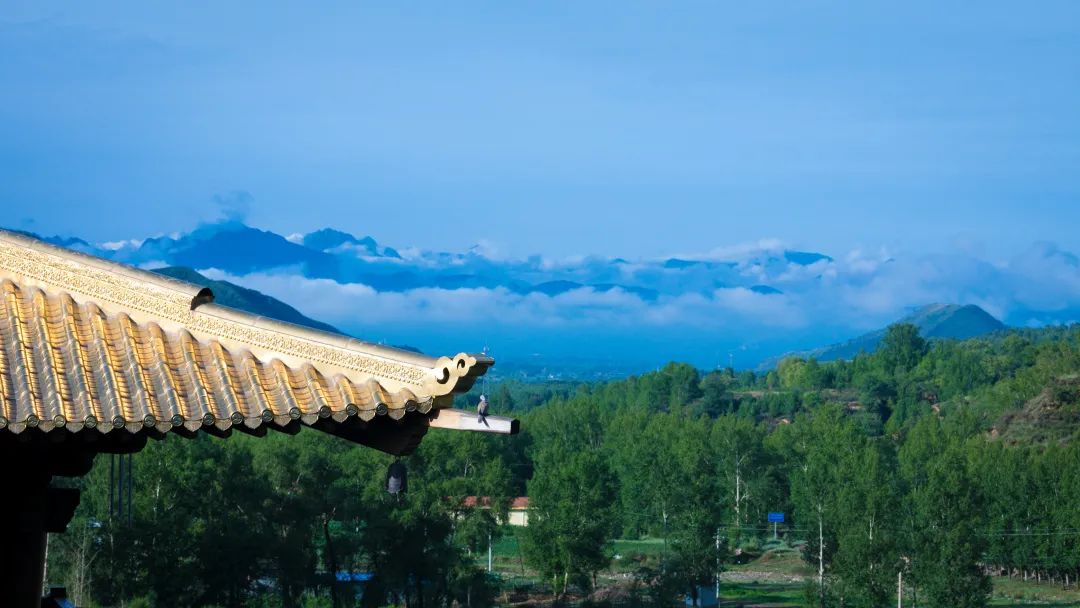
由“天道”生“地道”, 由“天地之道”而生“人道”, 这便是“一生二, 二生三, 三生万物”的天道观。天、地、人始于无名 , 成于有名。有名则天地开明 , 人乃文明。中国有文字记载的历史 , 由此开始。
From the Heavenly Path came the Earthly Path, and from the Paths of Heaven and Earth came the Path of Man. Such is the cosmology of the Heavenly Path where one begets two (yin and yang), two begets three (heaven, earth and man), [and] three begets all things. Heaven, earth, and man began nameless, and became named. When named, heaven and earth became clear and luminous, and man civilized. Chinese written history started from here.






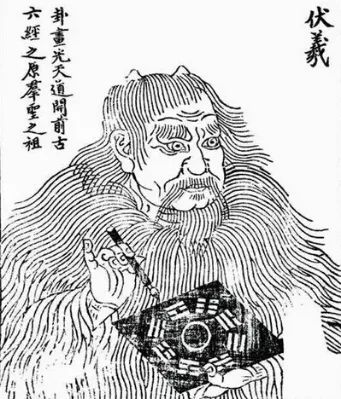
龙的传人:伏羲氏
Descendants of the Dragon – Fu-Xi
伏羲 , 风姓 , 燧人氏之子。
Fu-Xi’s surname was Feng. He was the son of Sui-Ren.
相传, 伏羲是人首蛇身。伏羲大帝有圣德, 定都陈地, 封禅泰山。封禅,“封”为“祭天”,“禅”为“祭地”。自无怀氏和伏羲大帝起, 开启了后世帝王在太平盛世或天降祥瑞之时祭祀天地的礼制。
Myth has it that Fu-Xi had the upper body of a human and the lower body of a serpent. The great Emperor Fu-Xi possessed great virtues. He set up his capital at Chendi, and had his feng chan at Tai Shan. Feng means ‘to worship the heaven’, while chan means ‘to worship the earth’. It was from Wu-Huai and the great Emperor Fu-Xi that the official ceremony to worship heaven and earth by later emperors and kings during times of peace or auspicious natural events was started.






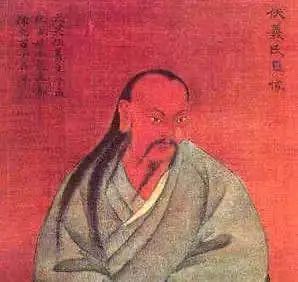
中国人称“龙的传人”, 始自伏羲大帝。
The addressing of the Chinese as the heirs of the dragon started with the great Emperor Fu-Xi.
伏羲根据天地间阴阳变化之理,创立了八卦。《史记》中这样描述伏羲:余闻之先人曰:‘伏羲至纯厚,作《易》八卦。’早在伏羲创立的先天八卦中,就蕴含了“天人合一”和“人天相应”的思想, 中华文化的原点自此枝开叶散。
Relying on the principle of change of yin and yang, Fu-Xi conceived the bagua (eight trigrams). Fu-Xi is thus described in the Records of the Grand Historian, ‘I heard my ancestors saying, ‘Fu-Xi was sincere and honest. He conceived the Yi Jing and the bagua.’’ The concepts of ‘heaven and man as one’ and ‘mutual resonance between man and heaven’ had already been incorporated early on in the Pre-Heaven Bagua conceived by Fu-Xi. Chinese culture originated at this point to blossom and branch out.







伏羲大帝“人头蛇身”, 应该怎样解读?
What are we to make of great Emperor Fu-Xi ‘s human upper body and his serpentine lower body?
我曾经在大英博物馆看到镇馆之宝,来自古希腊巴特农神殿的浮雕——人头马身像;在埃及,我们至今还能见到闻名世界的狮身人面像,但古埃及文明早已经湮灭在烽烟里;华夏文明的三皇时代,伏羲大帝是人头蛇身。这些古代文明到底要传递什么信息?为什么不约而 同地都指向人的头和动物的身?
I have previously seen in the British Museum its most-prized exhibit: the relief sculpture of Centaur which came from the Parthenon of ancient Greece. In Egypt, we are able to still see the world-famous Sphinx statue. However, the traces of ancient Egyptian civilization had already long vanished amidst the ravages of war. In the Hua Xia civilization, Great Emperor Fu-Xi had the upper body of a human and the lower body of a serpent during the time of the Three Sovereigns. What exactly was the message that these ancient civilizations were sending? Why had they all unwittingly adopted a figure which was human in its upper body and animal in its lower?
远古时代,人类在表达道理时多采用隐喻式说理,非常抽象。天地大道,无形无象。以人的头代表成熟的生命,暗含我们每个人都具 足对高维世界和对宇宙真相探索的智慧;以动物代表人身,暗含我们 每个人还留有动物的本能。
In ancient times, when humans needed to express themselves rationally, they mostly employed a metaphorical language which was very abstract. The grand paths of heaven and earth were without shape, nor form. The human head was used to represent the maturation of life, connoting the wisdom that every one of us possesses to explore the world of the higher dimensions and uncover the truth of the universe. Using the body of an animal to represent the human body is to imply that every human being still retains in himself the capabilities of the animal.

大家都读过《西游记》,为什么唐僧要带领一批动物——猴、猪、马去遥远的西天取经? 唐僧代表人,但这个人还残留有一些动物的习性。我们的“心”像猴子, 我们的“惰性”像猪, 我们做事情“不达目的誓不罢休”的精神像白龙马, 白龙马代表精进。
Everyone has read Journey to the West. Why did the monk from the Tang Dynasty lead a bunch of animals - the monkey, the pig, and the horse – to the faraway West to bring back the scriptures? The Tang monk represents man, who however, still had the habits of the animal in him. Our mind is like the monkey. Our sloth is like the pig’s. The spirit of not giving up until we have reached our objective is like that of the White Dragon Horse. The White Dragon Horse represents diligence.






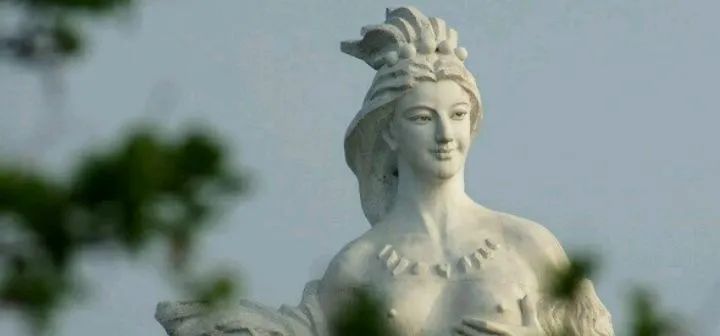
华胥氏像
伏羲与女娲的母亲:华胥氏
The Lady of Hua Xu State: Mother of Fu-Xi and Nü-Wa
在伏羲大帝的这段历史中,还有一个重要人物,即伏羲与女娲的母亲华胥。
There is another important figure in the history of great Emperor Fu-Xi: Hua-Xu, mother of Fu-Xi and Nü-Wa.
华胥又称华胥氏,这个在华胥国长大的女孩,有一次到雷泽游玩, 发现地上有巨人之迹,她很好奇,环绕几圈后用脚踩在上面,不久感 应受孕,怀胎十二年后生伏羲。
Hua-Xu, or the Lady of Hua Xu State, grew up as a girl in Hua Xu State. Once, when she was travelling in Leize, she found the foot print of a giant. She was very curious and stepped on it after going around it a few times. Not long after that, she was impregnated and gave birth to Fu-Xi, having carried him in her womb for twelve years.
然而,华胥国在一次大洪荒中遭受了灭顶之灾,只有伏羲和女娲两兄妹,因为坐在葫芦里漂到蓝田的骊山上,才幸免于难。兄妹两人为绵延人类命脉,结为夫妇。
However, the state of Hua Xu was subsequently submerged in a great flood. Fortunately, only Fu-Xi and Nü-Wa managed to survive the disaster as they had remained in a bottle gourd which floated to the top of Lishan in Lantian. To perpetuate the human lineage, the brother and sister became husband and wife.

经过多年考证,位于蓝田县的华胥陵逐渐从历史传说走向真实生活。可以说,华胥国是华夏最早的雏形。司马迁在《史记•五帝本纪》 有载:正是华胥氏生养了伏羲、女娲 , 再由伏羲女娲结合成婚 , 才繁衍出中华民族。
After many years of research, the historical legend of Hua-Xu Tomb in Lantian District was subsequently found to be factual. It can be said that the state of Hua Xu was the earliest predecessor of the Chinese civilization. Si Ma-Qian in The Annals of the Five Emperors of the Records of the Grand Historian wrote, ‘It was exactly the Lady of Hua Xu who gave birth to and raised Fu-Xi and Nü-Wa who later got together to marry each other that the Chinese race was able to multiply.’
有的人或许会产生疑问:难道我们这些龙的传人竟然是近亲结婚的后代?不是这样理解,这里是隐喻。道生一,一生二,二生三,三 生万物。伏羲与女娲,阴阳两体;同为华胥氏所生,二源于一,一阴 一阳,合而归道。
Some of you might ask or have this question, ‘Does it mean that we, the heirs of the dragon, are in fact the offspring of the marriage between close relations?’ It should not be understood that way. It is herein metaphorical. The Dao begets one, one begets two, two begets three, and three begets all things. Fu-Xi and Nü-Wa were the two bodies of yin and yang; both given birth to by the Lady of Hua Xu. Both originated from the one source; one yin and one yang, merging into one to return to the Dao.
如果用西方文化或者现代的物理学概念来解释,不要说无法诠释华夏文明,乃至世界上任何一个文明都解释不通。反之,如果用中华文化自身来解释中华文化,一通百通。我们说宗教产生哲学,哲学是 比喻,是概念,而“道”是真实存在。
If the concepts of Western culture or modern physics are to be employed as the means of explanation, not only would it be impossible for the Hua Xia civilization to be understood, none of the civilizations in the world would be intelligible. On the contrary, if we use Chinese culture itself to explain Chinese culture, everything is clear. We say that religion gives rise to philosophy - philosophy is analogical and conceptual, but the Dao exists and is real.

华胥国是怎样的生活状态?我们已经无法从伏羲或者女娲的口耳相传中寻到一丝消息,但在先秦的一部重要著作《列子》中,华胥国 赫然入目。这个文明的理想国,竟然源于两三千年之后黄帝的一个梦。
How was life like in the state of Hua Xu? We are unable to even get a fragment of information from the oral records said to have been passed down from either Fu-Xi or Nü-Wa. However, in Lie Zi, an important work in the pre-Qin period, what is written about the state of Hua Xu is startling. This ideal civilized state originated from the one of the dreams Emperor Huang had two to three thousand years later.







轩辕黄帝像
五帝之首:黄帝
The First among the Five Emperors: Emperor Huang
轩辕黄帝为中华民族始祖 , 人文初祖 , 居五帝之首。
Emperor Huang, or Xuan-Yuan, is the patriarch of the Chinese race, and the earliest ancestor of the Chinese culture. He is ranked first among the Five Emperors.
本姓公孙 , 长居姬水 , 因改姓姬 , 居轩辕之丘 ( 在今河南新郑西北 ), 故号轩辕氏。他出生、创业和建都于有熊 ( 今河南新郑 ), 亦称有熊氏。因有土德之瑞 , 故号黄帝。黄帝因统一中华民族的丰功伟绩而被载入史册。他播百谷草木 , 始制衣冠、建造舟车、发明指南车、定算数、制音律、创医学。黄帝时期的左史官仓颉 , 龙颜四目,天生睿德,观星宿的运动趋势和鸟兽的足迹,首创文字。
His original surname was Gong-Sun. As his permanent residence was at River Ji, he changed his surname to Ji. He stayed on the hill at Xuanyuan (present north-western part of Xinzheng in Henan), and thus had Xuan-Yuan as his courtesy name. Since his birth, his career and his capital were all at Youxiong (present Xinzheng in Henan), he was also known as You-Xiong. As he had the virtues of the earth, he was known as Emperor Huang (yellow, like the earth). It was because of his glorious accomplishment in uniting the Chinese race that his name is being recorded in the history books. He cultivated a hundred valleys, began the custom of wearing clothes and head-dress, built ships and carriages, invented the south-pointing chariot, standardized arithmetic, systematized music, and made innovations in the study of medicine. Cang-Jie, the court historian during the time of Emperor Huang, had dragon-like looks and two pupils in each eye. He was naturally wise and virtuous. He observed the movement of the stars and the constellations, and the footprints of the birds and the beasts to become the first person to invent writing.

黄帝梦游华胥国图
黄帝亦善于琴 , 曾作琴曲《华胥引》, 以明其志。《华胥引》记述了黄帝梦游华胥国的故事。
Emperor Huang was also good in playing the zither. He composed the zither piece Dream of Hua Xu to declare his aspirations. Dream of Hua Xu recounts the tale of Emperor Huang’s travel in the state of Hua Xu in a dream.
黄帝继位 30 年有余,仍思天下大治。有一次干脆闭门谢客,结果身心放松下来的时候,忽然梦游到华胥国。那个国度里的人都非常淳朴,上无国君,下无贵贱愚贤之分,人人无所嗜好,既不恋生也不畏死,更无爱憎利害之心。个体的生命与天地和宇宙浑然一体,以至于到什么程度?就是掉到水里,水都淹不死;掉到火里,火也烧不了。
Having ascended the throne for coming to 30 years, Emperor Huang was still preoccupied with the government of his country. There was once when he shut his doors and refused visitors, as a result of which he was able to relax both physically and mentally. He suddenly dreamt that he was wandering in the state of Hua Xu. He saw that the people in that state were all very simple. At the top of society, there was no distinction between the state and the leaders; and at the bottom, there was no distinction between the rich and the poor, and the wise and the foolish. The people had no cravings; neither were they obsessed with living nor were they fearful of death. It was not even in their minds to lust and hate, or to benefit themselves and harm others. Life at the individual level had merged into one with the heaven, the earth, and the universe to the extent that one would not drown if one fell into water, and one would not burn if one fell into fire.
黄帝醒来之后深受启发,于是召集大臣说,我终于知道——道, 不是说想求就能求到的。我虽然得道了,却无法告诉你们。其后二十几年,天下大治如同华胥国一般 , 而黄帝却仙逝了 , 百姓因此恸哭不绝。
Emperor Huang was greatly inspired when he woke up from his dream, so much so that he assembled his senior officials to tell them, ‘Finally I know that the Dao is not to be had just by one saying that one wants to search for it. Even though I have obtained the Dao, I have no way of telling you.’ Thereafter, his country was ruled like the state of Hua Xu for over 20 years. When Emperor Huang passed away, the people could not stop crying their hearts out.

列子像
关于黄帝的这个梦,在《列子》中有详细的记载:(黄帝)昼寝, 而梦游于华胥氏之国。华胥氏之国,在弇州之西,台州之北,不之斯(离)齐国几千万里。盖非舟车足力之所及,神游而已。其国无帅长, 自然而已。其民无嗜欲,自然而已。不知乐生,不知恶死,故无夭殇。不知亲己,不知疏物,故无所爱惜。不知背逆,不知向顺,故无利害。都无所爱惜,都无所畏忌。入水不溺,入火不热,斫挞无伤痛,指摘无痛痒。乘空入履实,寝虚若处林。云雾不碍其视,雷霆不乱其听,美恶不滑其心,山谷不踬其步,神行而已。
With regard to this dream that Emperor Huang had, it is being recorded in detailed fashion in Lie Zi: ‘(Emperor Huang) was taking a nap in the day, and he dreamt that he was wandering in the state of Hua Xu. The state of Hua Xu lay to the west of the province of Yan, to the north of the province of Tai, and who knows how many scores of millions of li (miles) from the state of Qi. As such, it was not reachable by boat, carriage, or on foot - only by spiritual journey. There were neither generals nor teachers in this state; all things followed their natural courses. Its people had neither any cravings nor desires; all the people followed their natural courses. They neither know delight in life, nor the fear of death; as such, there were no untimely deaths. They did not know preference for kin, nor dislike for things; as such, they had no desires and attachment. They did not know betrayal and how to go against the flow, nor devotion and how to go with the flow; as such, nothing was done to benefit oneself or to harm others. There were no desires and attachment, nor fear and avoidance. One did not drown when one fell into water, and one did not burn when one fell into fire. There were neither wounds nor pain when one was hacked or whipped; and neither discomfort nor irritation when one was poked or pinched. They rode space as though walking on solid earth, slept on the void as though in bed. Clouds and mist did not hinder their sight, thunder did not confuse their hearing. Beauty and ugliness did not disturb their minds, mountains and valleys did not frustrate their trips — for they make only journeys of the spirit.’

大家注意到没有,黄帝是如何向大臣们介绍华胥国的?他说华胥国,舟车不能到,只能跟我神游。换句话说,用三维或者四维空间的方法是到不了的,但可以通过五维乃至六维空间到达那个理想国。西方的文化体系是很难解释这个现象的,但用中华传统文化解释,非常通达。
Has everyone noticed how Emperor Huang introduced the state of Hua Xu to the senior officials? He said that the state of Hua Xu could not be reached by boat or carriage, but only by spiritual wander. In other words, it cannot be reached by any method which is three or four dimensional. One can only reach this ideal state through the fifth or the sixth dimension. The understanding of this is difficult through the cultural systems of the West. However, once it is explained using the Chinese culture, it is very clear.
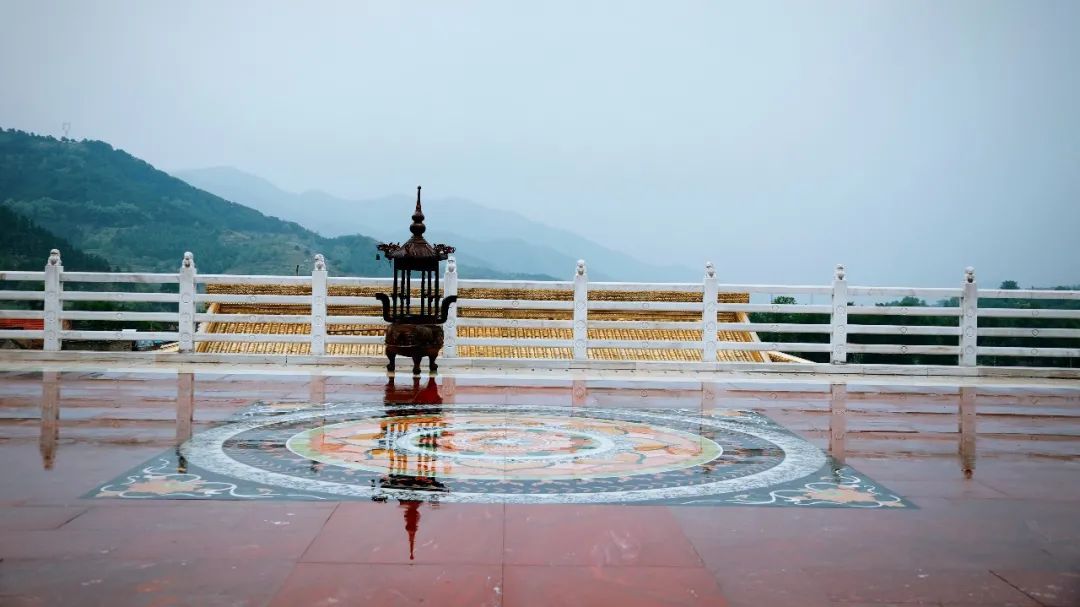
佛弟子念——南无阿弥陀佛!阿弥陀佛在哪里?极乐世界,阿弥陀佛是极乐世界的教主。极乐世界又在哪儿?离我们人类所处的银河系向西十万亿个佛土,有个世界名为极乐。十万亿佛土,相当于十万 亿个银河系这样子的星系。如此遥不可及的距离,不要说舟车,即使火箭乃至光速也到不了。
When Buddhist disciples chant ‘Namo Buddha Amitabha’, where is Buddha Amitabha? The World of Utmost Bliss. Buddha Amitabha is the leader of the World of Utmost Bliss. Where is the World of Utmost Bliss? Ten trillion buddha-lands to the west from the Milky Way galaxy we humans are in, there is a world called Utmost Bliss. Ten trillion buddha-lands are equivalent to ten trillion galaxies each of which is like the Milky Way. Such an unreachable distance - even if it was by rocket or light, one can never reach that place; needless to mention boat or carriage.

靠什么去呢?人类社会最高级和最珍贵的皆在我们的人性中。我们每个人的生命都是非常伟大的,所以佛陀告诉我们一切众生皆有佛 性。怎奈,多数人不了解这个真相,甚至连华夏文明也知之甚少。
What can we rely on then? That which is the finest and the most precious in human society lies within our human nature. There is extraordinary greatness in each of our lives. That is why the Buddha told us that all myriad beings possess buddha-nature. It is lamentable that most people do not understand this truth, and know little even of Hua Xia civilization.
现如今,有多少人,终其一生地生活在一个纯粹的物质空间里。我们崇拜现代科技,然后迷失于这个现象,恰如我们自造了牢笼,而 后把自己束缚其中。最为可悲的是,我们完全不觉知物质正在一点一点地吞噬着我们的情感,直至最后夺走一切精神性的东西。
At present, how many people are there who lead the whole of their lives in a purely material space? We idolize modern technology and get lost within this phenomenon. It is just like we have built a cage within which we have bound ourselves. The most pathetic of it all is how we do not realize that our emotional sensations are being swallowed up one by one by the material life, until finally when everything that is spiritual about us is being taken away.







舜帝像
舜帝:仁孝开明 彩云覆顶
Emperor Shun: Benevolent, Filial and Open-minded – Colourful Clouds over the Summit
二十四孝之首—舜帝 ,出生于山东潍坊诸城。
‘Emperor Shun, the first among the Twenty-four Exemplars of filial piety,
was born in Zhucheng, in Weifang, Shandong.’
“孔孟之道”一直推崇“三皇五帝”,“五帝”中又以“尧舜” 为楷模。“四海之内咸戴帝舜之功”,“天下明德皆自虞帝始”,仁孝开明的舜帝 , 对中华民族淳厚民风的形成起了至关重要的作用。
The ‘Dao of Kong-Zi and Meng-Zi’ have always promoted and revered the Three Sovereigns and the Five Emperors, with Yao and Shun as the exemplars. ‘All within the four seas were grateful for the labours of Emperor Shun.’ ‘Men of illustrious virtues in the world began from the days of Emperor Shun of Yu.’ The benevolent, filial and open-minded Emperor Shun was integral in the formation of the Chinese ethnic identity which is characterized by simplicity and honesty.
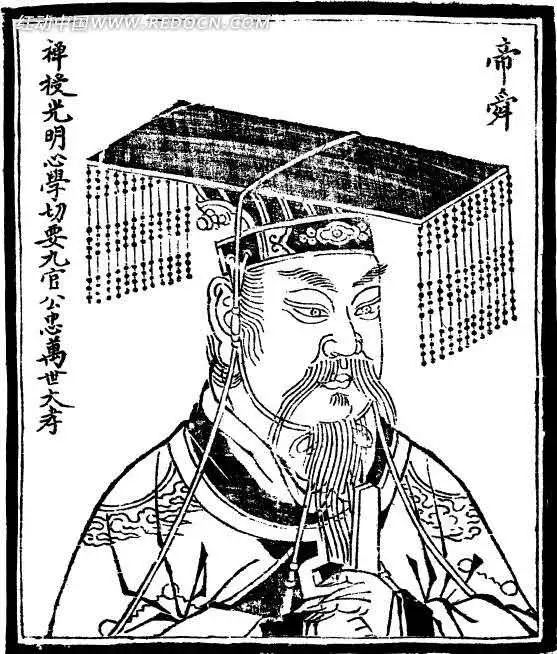
舜, 出身寒微, 父为盲人, 早年丧母 , 父又续弦 , 生弟名象 , 后母苛刻刁难。舜生活在“父顽、母嚣、象傲”的家庭环境中, 后母与象甚至用泥土封井 , 欲置舜于死地而后快。然而,大难不死的舜不记前嫌 , 对父母不失子道, 十分孝顺 , 与弟弟十分友善 , 数年如一日 , 没有丝毫懈怠。“欲杀, 不可得;即求 , 常在侧”。
Shun was born into a family with humble means. His father was blind and he lost his mother early. His father remarried and he had a brother called Xiang. Shun’s step-mother was hard on him and he lived in a family ‘the father of which was stubborn, the mother turbulent, and Xiang arrogant.’ His step-mother and Xiang had even used mud to seal up the well into which Shun was thrown so that they could kill him. However, Shun survived the traumatic ordeal and did not hold any grudges. He did not act in any way which was unbecoming of a son and was extremely filial, and he was very amiable towards his brother. Without exception over the years, he had not been in the least bit lazy. ‘They attempted to kill him many times to no avail; but he was always by their side whenever they needed his help.’







慧日钟鸣
Sounding of the bell at Hui Ri Temple
家里没有送舜去读书 , 坚持要舜放牛 , 好在教书先生善良 , 舜一边放牛一边从先生那里学习人生的道理。一个人虽有聪明睿智之质 , 经天纬地之才 , 仁圣忠和之德 , 但“学问”二字终究不可少。后母规定他从朝至暮地劳作 , 连中餐也不准回去吃 , 有人问他 , 他则笑答: “农家以节俭为本, 一日两餐足矣 , 何必三餐?”舜常无故就被逐出家门 , 日子清苦 , 却澡身浴德 , 道德修养也越来越高。
Shun’s family did not send him to school. They insisted that he herded cattle. It was fortunate that a teacher was kind enough to let him learn under him and instruct him on life’s lessons as Shun herded cattle at the same time. Even though a person may be intelligent and full of wit, endowed with the talent to rule the world and the virtues of benevolence, righteousness, loyalty, and harmonious goodwill, he cannot do without knowledge. His step-mother demanded that he labored from dawn till dusk, and he was not even permitted to head home for lunch. Someone had asked him about that and he laughingly replied, ‘Thriftiness is the foundation of the farming household. It is sufficient that one is having two meals a day. Why is it necessary that one should have three?’ Shun was always chased out of the family without reason. Although his life was materially hard, he strove to be virtuous and as a result, his moral cultivation got better and better.

中国人讲“德重鬼神钦”。身世如此不幸 , 环境如此恶劣 , 舜却能表现出非凡的品德 , 这就叫难行能行。一个人保持着孝心 , 孝心的正能量感天动地 , 连鬼神都敬重舜 , 老百姓也被他感动 , 所以舜所在之处“彩云覆顶”, 到哪自然有人追随, 当时自发追随者就有几千人。他在哪儿 , 哪儿就风调雨顺。古文记载 ,“尧天舜日”意指圣贤所在之地 , 五风十雨。
The Chinese say, ‘When one is strongly endowed with virtues, the ghosts and the deities look up to him.’ With such unfortunate upbringing and such unpleasant environment, Shun was still able to display unrivalled moral character and virtues. We call this ‘doing that which is impossible to do’. When a person maintains a filial mind, even the heaven and the earth will be moved. Even the ghosts and the deities respected Shun. The common people were also moved by him – that was why they placed Shun within ‘colourful clouds over the summit’. People naturally followed him whenever he went. During that time, those who followed him at their own will numbered in the thousands. Whenever he went, the winds were gentle and the rains calm. In the ancient books, ‘Yao sky and Shun sun’ is to mean that wherever the holy and sagely person was, there were winds every five days and rains every ten.

舜的美德 , 渐渐传到了尧。尧帝年纪颇长 , 正请百官举荐人才 , 这些人一致推举舜。尧帝随后召见舜,他的德行连尧帝也为之感动, 把两个女儿都嫁给了舜。
Shun’s marvelous virtues were gradually related to Yao. Yao was older in age, and when he asked the court officials to endorse someone with talent, they unanimously recommended Shun. Following that, Emperor Yao summoned Shun for a meeting during which Shun’s moral cultivation and conduct so moved Yao that he married off both his daughters to Shun.
舜逐渐参与到政事 , 管理百官 , 接待宾客。经多年磨砺,尧禅位于舜 ,《尚书》中称舜“受终于文祖”。舜摄政 28 年 , 舜 58 岁时 , 尧帝驾崩。舜于三年丧事完毕后 , 61 岁登上天子之位。
Shun was subsequently involved in the government of the state. He managed the court officials and received state guests. After many years of honing, Shun took over upon Yao’s abdication in his favour. The Esteemed Documents records that Shun ‘inherited the rule from the Patriarch of Letters (Yao).’ Shun ruled as prince-regent for 28 years. When Shun was 58, Emperor Yao passed away. After three years of funeral rites, Shun assumed the throne of the Son of Heaven at the age of 61.
登基之后, 他勤政爱民, 励精图治。《史记》记载:“天下明德 , 皆自虞帝始。”舜帝执政 48 年 ,110 岁的时候还视察民情 , 在今天湖南的南边 , 卒于途中并安葬在那里。
After his enthronement, Shun was diligent in governing and he was caring of the people, and conscientious in his rule. It is written in the Record of the Grand Historian that, ‘Men of illustrious virtues in the world began from the days of Emperor Shun of Yu.’ Emperor Shun ruled for 48 years. He was still making inspections in the southern part of present Hunan at 110 years old when he passed away halfway through the journey and was laid to rest there.

舜帝也将帝位禅让给了治理水患“三过家门而不入”的大禹。舜帝的一生 , 是中华民族炎黄子孙仁孝的楷模。
Emperor Shun also abdicated in favour of the Great Yu who managed floods and ‘thrice passed by his home [while on official duty] without entering´. The life of Emperor Shun is the epitome of benevolence and filial piety for the descendants of Emperors Yan and Huang.
正是带着这种思考,以一个继承者的角度,而不是批判者的角度,我们来探索华夏文明之源。回望华夏几千年历史,文化若亡,国将不 国。一旦迷失了华夏文明的源头,道就不复存在。道若迷失,德必不侣。对于一个国家或者民族而言,所谓的道德滑坡或者道德危机,是非常悲哀的事情。一个国家的强盛,离不开精神的支撑;一个民族的进步,有赖于文明的成长。《人民日报》这样评论:历史证明一个国家和民 族贫弱落后固然可怕,但更可怕的是精神空虚。
It is exactly with such a line of thought – from the perspective of someone who inherits, and not someone who criticizes – that we should explore and search for the origins of the Hua Xia civilization. Looking back at the few thousand years old history of the Hua Xia civilization, we find that a state no longer remained a state when its culture got destroyed. Once we lose sight of the origins of the Hua Xia civilization, the Dao no longer exists. Once the Dao is lost, virtues which accompany it will be lost as well. For a state or a race, it is very pathetic that there should be what amounts to a moral decline or a moral crisis. The strength and success of a state is impossible without spiritual support. The advancement of a people is dependent on the growth of its civilization. The People’s Daily commented, ‘History has proven that it is dreadful when a country or a people become poor, weakened and backward. But what is even more dreadful is spiritual void.’

佛教讲修行,又名求解脱。为什么要解脱,谁束缚了我们?我们的愚痴,我们有限的甚至是错误的人生观和世界观束缚了我们自己。 生命不过短短几十年,必须要找到其终极意义。许多人读书学习,只是为了掌握生产力的各种技能,但是有一点,作为生产力的主体,如果你迷失掉自我,就会沦为掌握某种技能的“工具”,甚至沦为物质的奴隶,这是很恐怖的。今天是六一儿童节,就算年龄再长,哪怕活 到八百岁,在华夏文明的古老智慧面前,我们真的就像幼儿园里的孩 童,一个垂髫稚子罢了。
Buddhism talks about practice, and seeking release. Why seek release? Who has bound us? Our foolishness and ignorance, and our limited or even erroneous outlook on life and worldview, have bound us. Life is but a brief few scores of years. We need to find out its ultimate meaning. Many people study and learn, only to grasp the various skills needed for material production. However, there is a one thing we need to know: as the principal subject of productivity, once we lose our ‘self’, we end up becoming a tool for grasping a particular skill, or even a slave to materialism. This is very horrible. Today is the first of June – Children’s Day. No matter how old one gets, even living to the age of 800 years, we are all like children in a kindergarten – mere kids with fringes – faced with the ancient wisdom of the Hua Xia civilization.
英文翻译&读诵:建成






慧日国际微信工作室
往期精选:
善師贊 Praise to the Wholesome Teacher
《妙法莲华经》(五百弟子受纪品第八)(Keith美式发音读诵)
【殊胜日功德亿倍】《妙法莲华经》(化城喻品第七)(Keith美式发音读诵)
【中英双语】《妙法莲华经》(授记品第六)(Keith美式发音读诵)
超能力、折叠时空、选择觉醒还是酷炫的神通?——「慧」看电影之《奇异博士》
最新视频《祈愿Praying》全网首发,祈愿世界疾疫消除、众生吉祥安乐

什么!?慧日国际佛学平台招募义工,还不赶快报名!
我们用心选择图文,陪伴读者走过漫漫时光,如果您也怀揣信仰,
擅长英语、法语、德语、意大利语、西班牙语、葡萄牙语、俄语、韩语、日语、瑞典、挪威语、荷兰语等语种翻译,文字编辑,和图文海报设计,那就别犹豫啦!邮箱:Huiriguoji_recruit@qq.com
~随喜转发~
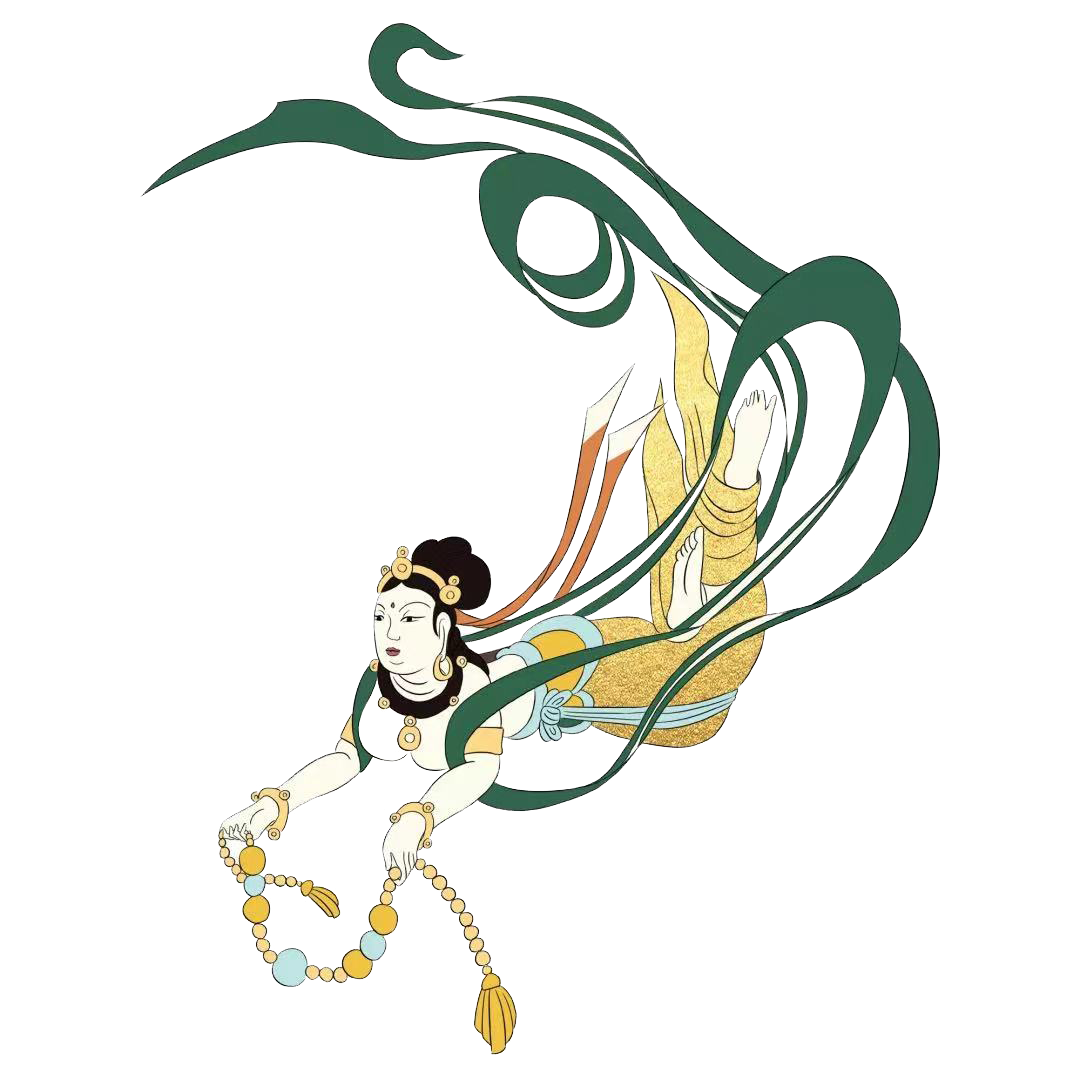


关注公众号
发菩提心
慧日国际佛学HRIB
义工招募:
如果您对微信排版、海报设计、多语种翻译有兴趣
请和我们联系吧!
